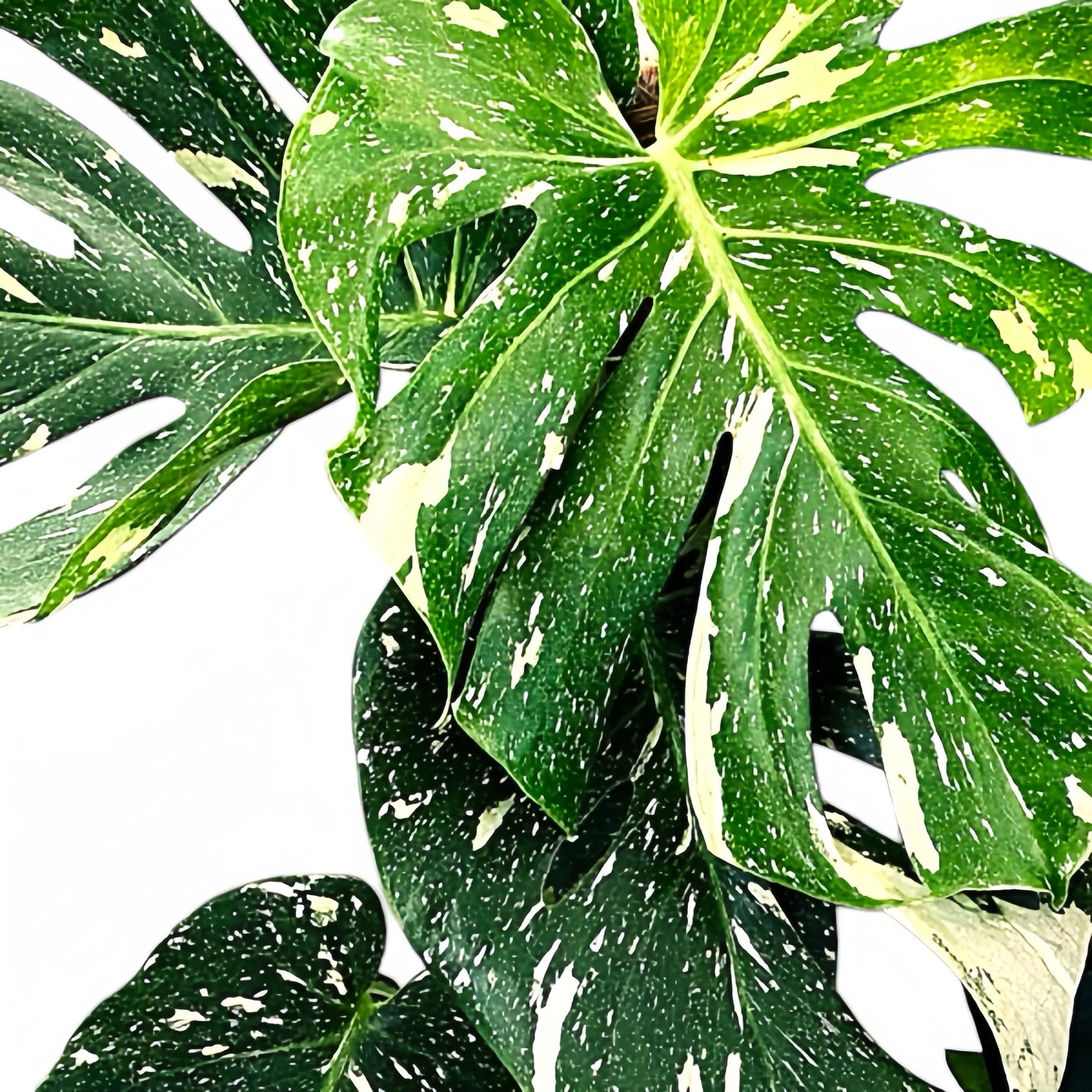How to Grow and Care for Thai Constellation Monstera

The Monstera Thai Constellation is a spectacular houseplant that captures attention with its dramatic, variegated foliage. Each new leaf is unique, showcasing splashes of creamy-yellow against lush green, making it a prized addition for collectors. Although its origin lies in a tissue culture laboratory in Thailand—developed from the parent Monstera Deliciosa—the plant’s care is straightforward when you follow the basics.
What is Thai Constellation Monstera?
The Thai Constellation Monstera is a rare, variegated version of the well-known Monstera deliciosa. Its leaves display creamy white and green patches that form intricate patterns reminiscent of starry skies. Here’s what makes it unique:
- Distinct Variegation: The interplay of white and green creates a striking visual pattern that draws the eye.
- Enhanced Light Needs: The variegation demands more light than typical green varieties, ensuring its patterns remain vibrant.
- Collector Appeal: Its rarity makes it highly desirable for those looking to add a unique specimen to their indoor plant collection.
Optimal Conditions for the Monstera Thai Constellation
To ensure your Thai Constellation Monstera thrives, providing the right conditions is crucial. Aim to meet these requirements:
- Light: Place the plant in a bright area with indirect light to maintain its vibrant variegation.
- Humidity: A warm, humid environment is ideal; if necessary, increase ambient moisture using safe indoor methods.
- Temperature: Keep your plant in a stable, warm setting to mimic its tropical origins.
- Watering: Allow the top inch of soil to dry out before watering to avoid excess moisture and root rot.
Maintaining these conditions will not only support robust growth but also ensure that the plant's unique features remain vivid and attractive. Providing the right balance of light, humidity, and water creates an optimal environment where your Thai Constellation Monstera can flourish.
Propagation
Propagation can be done through two methods:
-
Air Layering:
Wrap a node or aerial root with damp sphagnum moss, then cover with saran wrap to maintain moisture. In two to three weeks, new root growth should appear. Wait a couple more weeks if longer roots are desired before cutting. -
Stem Cuttings:
Take a cutting with at least one node and let it dry for about a day. Applying rooting hormone can boost success. You may propagate in water, LECA, or sphagnum moss. If using water, submerge the cutting halfway, change the water weekly, and propagate during the active growing seasons of spring and summer.
How to Maintain Unique Features
Preserving the plant’s distinct variegation involves careful attention to its specific needs. Consider the following pointers:
- Light Management: Since more variegation means a higher need for light, make sure your plant is always in a well-lit area.
- Water Control: Avoid overwatering to prevent any negative impact on the leaf patterns.
- Environmental Monitoring: Regularly assess the plant’s conditions to adjust care routines accordingly.
Balancing light and water is crucial in keeping the unique patterns of the Thai Constellation Monstera sharp and vibrant, ensuring it remains as captivating as the day you brought it home.
Where to Find Thai Constellation Monstera
Starting your plant journey with a healthy specimen is essential. Here are some guidelines for sourcing your Thai Constellation Monstera:
- Reputable Sellers: Look for nurseries or online stores that specialize in rare and exotic plants.
- Customer Feedback: Read reviews to confirm the authenticity and quality of the plant before purchasing.
- Expert Guidance: Choose sellers who provide detailed care instructions and ongoing support.
At Plant Vault, we ensure that every Thai Constellation Monstera is sourced from expert growers and maintained with the highest quality control, so you receive a plant that is both healthy and vibrant.
Grows Well With
| Accessory/Complement | Description/Benefit |
|---|---|
| Grow Lights | Provide extra light to supplement natural sunlight for indoor growth |
| Moss Pole | Offers support for climbing and encourages healthy upright growth |
| Soil Explosion | A specialized Plant Vault soil blend designed for optimal plant health |
FAQs
What is the ideal watering frequency for a Thai Constellation Monstera?
Water your plant when the top inch of soil feels dry to help maintain healthy roots and preserve its variegation.
How do I maintain its variegation?
Ensure it receives plenty of bright, indirect light throughout the day, and adjust its placement with seasonal changes if needed.
Can the Thai Constellation Monstera be easily propagated?
Yes, using stem cuttings is effective as long as each cutting includes at least one node for proper root development.
Conclusion
The Thai Constellation Monstera is an excellent choice for elevating your indoor plant collection with a unique and easy-to-care-for specimen. Its striking variegated leaves and simple care requirements make it a delightful addition to any space. Remember that providing the right amount of light and water is key to keeping your plant healthy and vibrant. Whether you are new to plant care or have years of experience, the information shared here is designed to help you maintain a thriving indoor garden.
As you incorporate the Thai Constellation Monstera into your living space and apply the practical, expert advice provided, you will not only enjoy a plant that is both visually appealing and easy to care for but also benefit from a more vibrant, healthful home environment that supports your green journey and inspires you every day.






Leave a comment